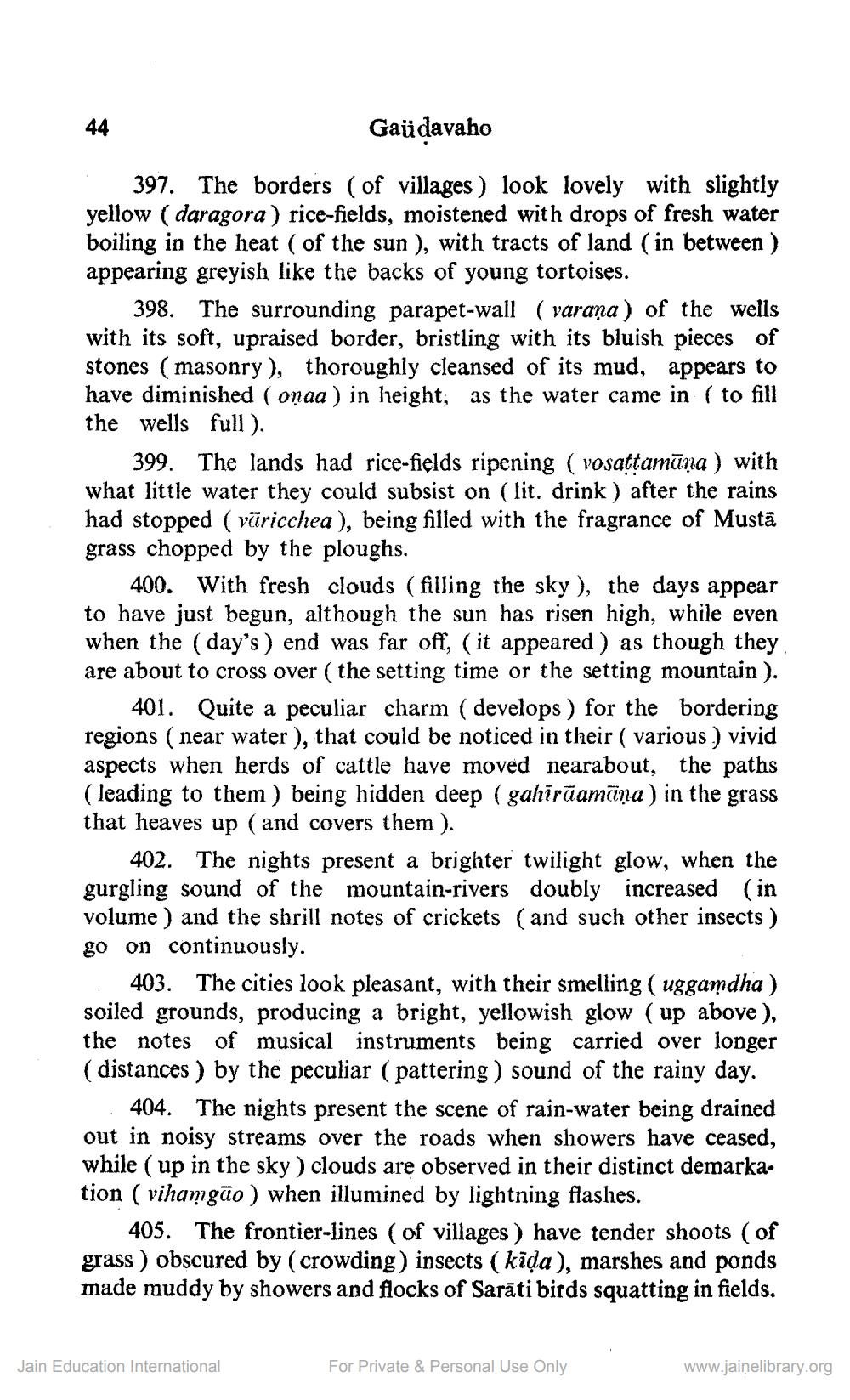________________
Gaüdavaho
397. The borders (of villages) look lovely with slightly yellow (daragora) rice-fields, moistened with drops of fresh water boiling in the heat (of the sun ), with tracts of land (in between ) appearing greyish like the backs of young tortoises.
44
398. The surrounding parapet-wall (varana) of the wells with its soft, upraised border, bristling with its bluish pieces of stones (masonry), thoroughly cleansed of its mud, appears to have diminished (onaa) in height, as the water came in ( to fill the wells full).
399. The lands had rice-fields ripening (vosaṭṭamāņa) with what little water they could subsist on (lit. drink) after the rains had stopped (vāricchea), being filled with the fragrance of Musta grass chopped by the ploughs.
400. With fresh clouds (filling the sky), the days appear to have just begun, although the sun has risen high, while even when the (day's) end was far off, (it appeared) as though they are about to cross over (the setting time or the setting mountain ).
401. Quite a peculiar charm (develops) for the bordering regions (near water), that could be noticed in their (various) vivid aspects when herds of cattle have moved nearabout, the paths (leading to them) being hidden deep (gahīrāamāņa) in the grass that heaves up (and covers them).
402. The nights present a brighter twilight glow, when the gurgling sound of the mountain-rivers doubly increased (in volume) and the shrill notes of crickets (and such other insects) go on continuously.
403. The cities look pleasant, with their smelling (uggamdha) soiled grounds, producing a bright, yellowish glow (up above), the notes of musical instruments being carried over longer (distances) by the peculiar (pattering) sound of the rainy day.
404. The nights present the scene of rain-water being drained out in noisy streams over the roads when showers have ceased, while (up in the sky) clouds are observed in their distinct demarkation (vihamgão) when illumined by lightning flashes.
405. The frontier-lines (of villages) have tender shoots (of grass) obscured by (crowding) insects (kīḍa), marshes and ponds made muddy by showers and flocks of Sarāti birds squatting in fields.
Jain Education International
For Private & Personal Use Only
www.jainelibrary.org




